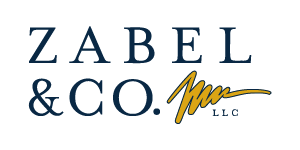Your business is only as healthy as its finances. And while it’s easy enough to talk about reaching financial wellness or optimizing your business’s financials, strategizing how to do so can be a lot more complex. Not sure where to start? Here are five steps to optimize your company financials in 2024.
Monthly Accounts Analysis
Before you make any changes, you should always start by taking a close look at your accounts. Analyzing your financial statements each month might not sound like a big deal, but it’s the best way to catch problems and inaccuracies early.
When you have one or more financial experts poring over your accounts every month, your company can enjoy a whole host of benefits, including:
- Correcting small discrepancies before they become major issues
- Ensuring regulatory compliance
- Forecasting future performance
- Building trust with partners and customers
- Ensuring accurate tax planning
Of course, to make sure your company reaps all the benefits of each analysis, you should make sure you have a strategy for implementing any changes your team decides on.
Reconciling Bank Statements
Reconciling your bank statements is a critical part of auditing your finances, so it’s something you should include in your monthly account analysis.
When you reconcile your statements, you make sure that your internal records match those kept by your financial institution. This process helps you make sure your records are accurate at all times. It’s also critical when it comes to identifying embezzlement and other kinds of internal fraud.
Assessing Outstanding Invoices
If your business deals with a large number of invoices each month, it’s easy to forget one or two. If that becomes a habit, your business misses out on revenue. And if that revenue goes on your books before the invoice has actually been paid, you might think you have more capital to work with than you do.
To maximize your company’s financial health, you should make it a priority to assess outstanding invoices each month. If invoices are past due, make sure you reach out to clients to collect payment.
If late payments are becoming a significant issue, it might be time to implement new policies like:
- Early payment discounts
- Late fees
- Automatic payment reminders
- Upfront billing
In cases where a client persistently refuses to pay, you may need to weigh the costs of taking legal action or hiring a debt collector.
Understanding Cash Flow
For many business owners, cash flow is the first thing that comes to mind when they think of optimizing financials. “Cash flow optimization” is a very broad goal, but it can be broken down into three key elements:
- Increasing your cash inflow
- Decreasing your cash outflow
- Improving the timing of cash inflows
The larger and more complex your company is, the more challenging it becomes to understand and optimize cash flow. Hiring a financial expert — even part-time or temporarily — is essential if you want a clear understanding of your current cash flow and how to improve it.
Working With a Fractional CFO
Generally, larger businesses seem to have an easier time organizing and optimizing their finances. That might seem counterintuitive, but larger companies have a major advantage over smaller companies when it comes to leadership — they often have a dedicated chief financial officer (CFO).
Unfortunately, for startups and smaller companies, hiring a full-time CFO simply isn’t practical, but that doesn’t mean you have to do without.
A fractional CFO is a contracted CFO who can work with your business on a part-time or even per-project basis. With the right fractional CFO, you get the benefit of expert guidance without having to pay a full-time salary and benefits.
Make Your Business Financially Stronger Than Ever
When it comes to optimizing your financials, nothing matters quite as much as having a strong financial leader. Fortunately, this doesn’t mean you need to hire a full-time CFO. At Zabel & Co., we take pride in connecting your company with the resources and expertise needed to grow. If you’re looking for a fractional CFO or want to see what else we can achieve together, get in touch with us today.







